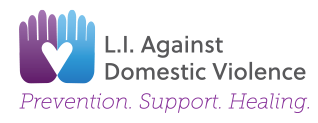
Domestic Violence and the Elderly
The abuse that older victims describe is similar to the experiences of other victims of domestic violence; abusers control their victims through intimidation, isolation, threats and violence. However, for older victims, abuse can be made worse by age, poor health and other age-related needs. Abusers may limit access to medical care, give too much medicine or take away assistive devices. Older victims are also less likely to call a local domestic violence program or the police, so they don't show up as often in reports about crimes.
Domestic violence in later life occurs when a person uses power and control to inflict physical, sexual, emotional, or financial injury or harm upon an older adult with whom they have an ongoing relationship. The aggressors include spouses and former spouses, partners, adult children, extended family and in some cases caregivers.
If you suspect an older person is being abused you should:
- Support the victim
- Listen and give them information.
- Avoid telling them what they SHOULD do
- Contact L.I. Against Domestic Violence
Fast Facts:
- Older people have the right to make their own decisions. Estimates show that one million Americans 60 years of age or older are abused in their homes each year.
- Only one case in 14 is ever reported to authorities.

